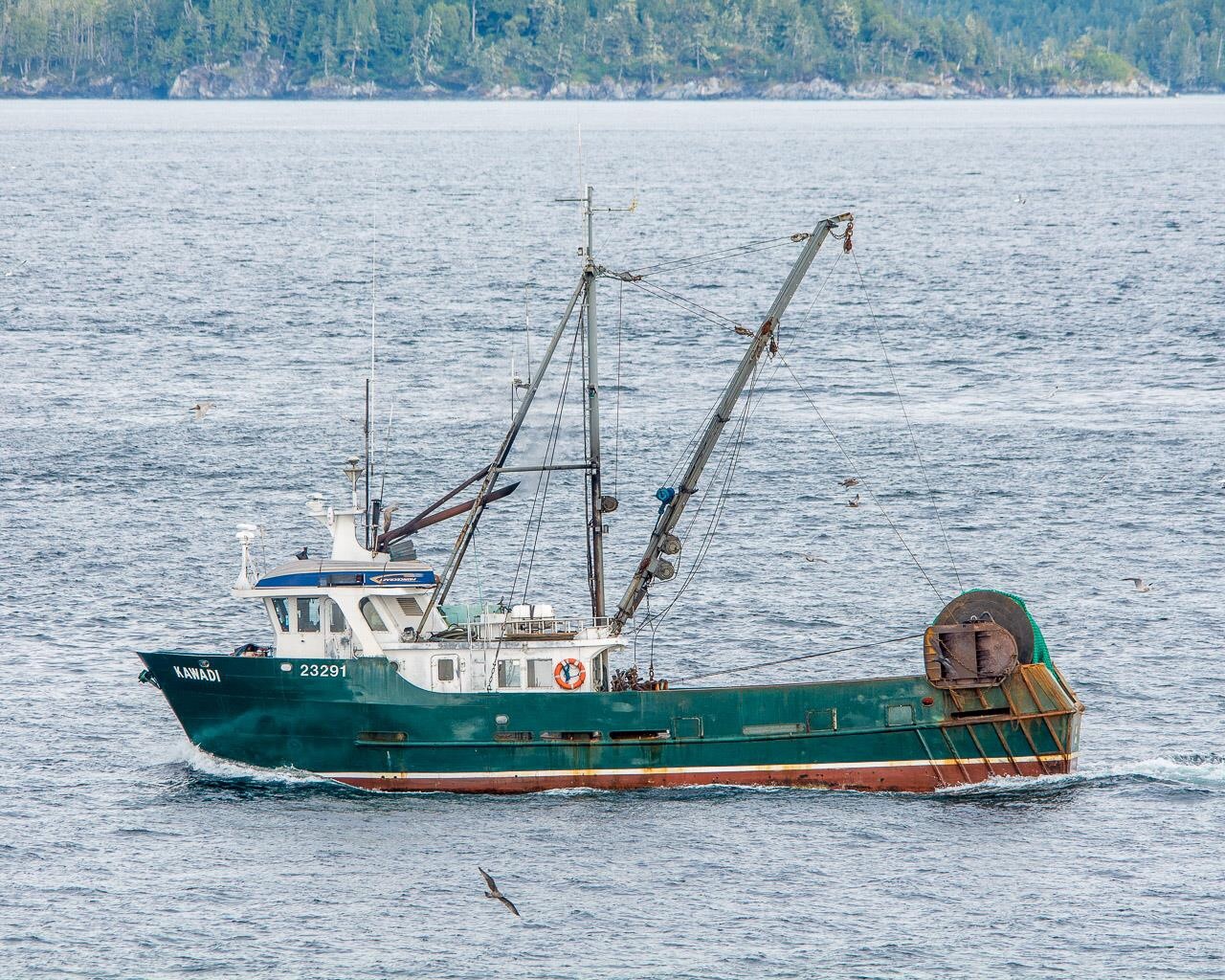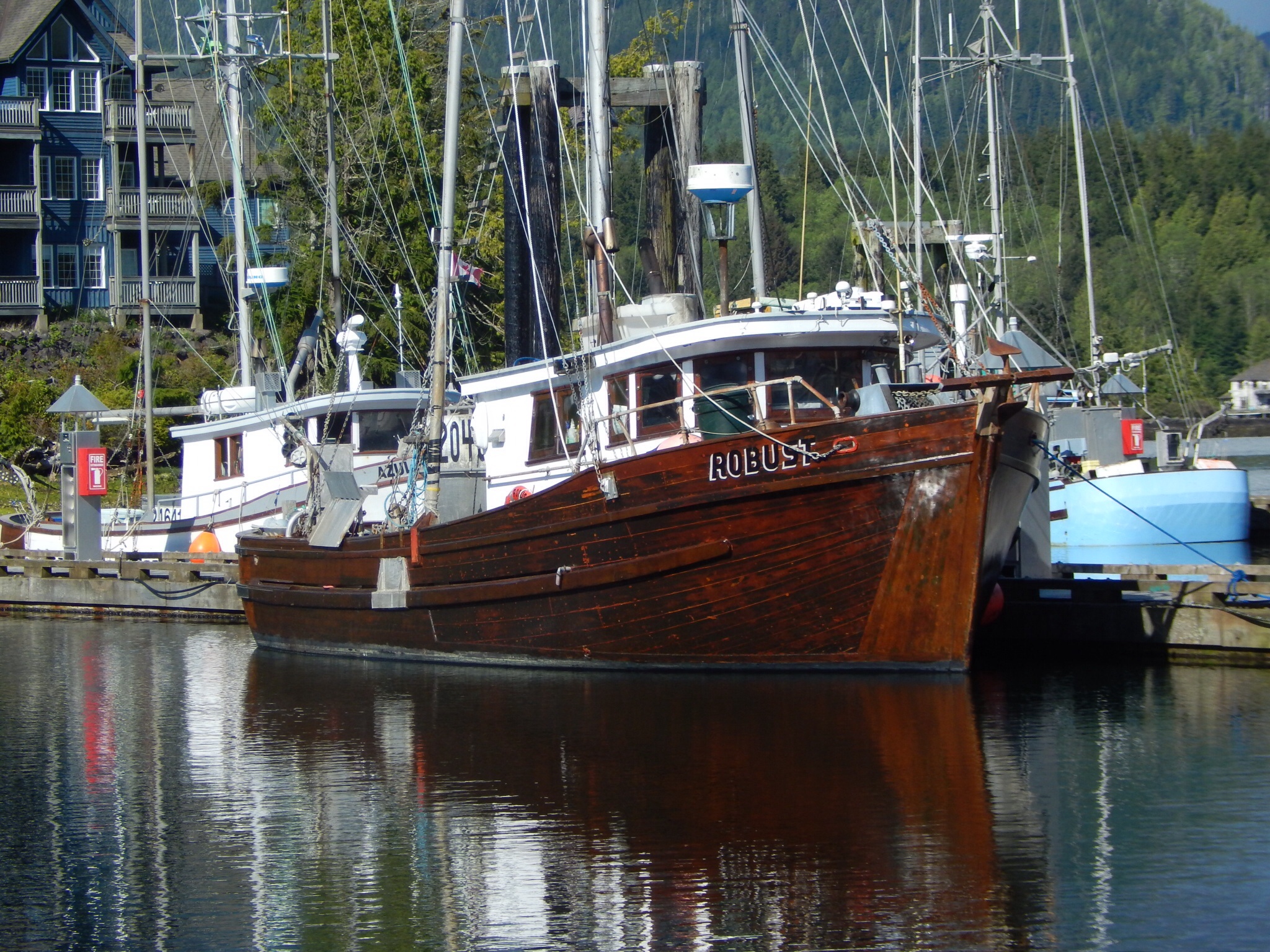occasional fish for health? or not necessary?
 inyo
Explorer
inyo
Explorer
I've been gathering some info from both western and eastern perspective on the best foods to eat for health and I've come to the conclusion that ultimately it does depend on the person and where they are in life and such. Lately I've had a "feeling" to eat fish strictly for health reasons maybe once a month or something. However, I'm finding this to be hard since I haven't directly eaten meat for about a year. I've asked western doctors and they seem indifferent since my blood work is good. Eastern medicine supports eating meat in moderation based on certain energies it carries (still trying to figure this out). I've read pretty much all threads on this site about vegetarianism, but there is little info about the actual health benefits/deficiencies related to fish in particular. I'm not so interested in hearing the ethics (that has already been majorly discussed), but in the matter of if I really need it to be healthy. why take the fish if I don't need it to be healthy? so that's why I'm here I suppose, to hear the opinions/evidence of if I need the occasional fish for health.
All research I've found equally can support both sides, there's no answer.
Are there any knowledgeable people or nutritionists/doctors that may have some advice on really how much healthier it is to eat fish occasionally?
I understand this is a personal choice and all that, but as part of my choice I need to do my best to gather as much info/evidence as possible before I just go for eating fish...Instead of being like "okay I'll eat the fish just in case I need it for health reasons" I'd rather sort of know it is doing my health better than without. Does that make sense?
Again, this is strictly a question regarding health I know there's a lot of opinion on ethics with this, but really I'd like to hear about the possible need of nutrition fish may offer.
On a sort of side note: The fish I'm considering eating is "red copper salmon" I think it's from Alaska. For those who don't know their interesting life cycle: The salmon swim from fresh water river to the ocean where they live their life. Then toward the end of their life they start on a journey upstream (hundreds of miles!) usually at the same stream they were originally from (using some kind of magnetic detectors to find their original stream). They can find the area where they were originally and begin spawning, once they spawn their bodies rapidly deteriorate and they die. My dad encourages to eat these fish if any fish since they're caught about a week before they're going to die anyway and they're suffering on their way up the stream since they're already sort of dying...(on one hand, yes maybe it is a little better since they're going to die so soon, but on the other hand, it is still an act of killing). Anyway! I find fish to be interesting and strange aside from their health benefits.


Comments
It's an individual decision. You can take supplements to get the same healthy oils in the fish, but as usual, getting it direct from the source tends to be better. More of the nutrients are absorbed. You can get omega fats from nuts, flax, chia and other seeds/nuts as well, but I would have to look if you can get all forms from nuts or not. I don't recall off the top of my head. Also, if you do take actual fish oil, the outcome for the fish isn't any different and for less benefit to you.
Other than the fans, fish is an easy way to get protein.
Great info, thank you. Makes sense that more nutrients are absorbed from the source- Just for my info-why do you think the nutrients are better absorbed from direct source? is this just common knowledge or have you noticed it personally?
I believe you are talking about Copper river sockeye salmon. Although you said you didn't want to talk about the ethics of eating fish, you did touch upon it, when you brought up their life cycle.
It should also be noted that those fish that are harvested are in excess of spawning requirements. In many river systems commercial harvest helps to maintain a healthy run as does predation. Over spawning can have a bad effect on the next generation.
I'm a British Columbia fisherman, but I have a good deal of respect for the Alaskan fishery managers. They take conservation of their own own resource pretty seriously as well as recognizing the importance of their fisheries.
To your question. While all salmon in moderation is good food, in my view, Pink, otherwise known as humpback salmon, might be a healthiest choice. Their life cycle lasts for only two years, so they don't have much time to absorb toxins. And they are oily little guys. Like any fish, don't over cook them and they are great. Excellent smoked or bbqed as well.
For the best quality buy troll or ocean caught. As they get too close to the river the oil content goes down. Not as tasty or healthy.
Yes, the bigger the fish the more heavy metals and other toxins the fish will have.
As for the absorption, it just seems to be how our bodies work. Everything within the food we eat (when it's real food) and our body's hormonal/chemical makeup works together to promote the best digestion and thus absorption of vitamins, minerals, essential fats, and other things. I don't remember if I looked up fish oil specifically, but any supplementation has always been shown in studies to be less effective. Vitamins? Most of what is in them is peed out. Same with many other supplements, protein powders, and so on. Fish oil is probably a little bit better, but it is still within a capsule (usually gelatin) and mixed with other things to prevent it from going bad. Whole foods are almost always the best option.
Fish once a month isn't' going to make a difference in your health, OP. If you're going to eat fish for health reasons, it should be once/week. I have fish twice/week.
Quite often our bodies have a healthy message, that is worth exploring with the excellent advice given.
I am glad to hear a use for tolls and trolling has been found.
Food item.
Good news. :buck: .
thanks everyone for all of the helpful info!
Fish three times a week is even better for you
I am glad to hear a use for tolls and trolling has been found.
Funny how the spelling of that changed over time. It used to be spelled "trawl", "trawlers", "trawling".
I'm a Catholic so I can only eat it on Fridays. .
.
Funny how the spelling of that changed over time. It used to be spelled "trawl", "trawlers", "trawling".
Actually, trawling, or dragging, involves towing a net across the bottom or in the midwater depending on what species is being targeted. Trawlers fish for pollock, hake, rockfish, cod, and such.
Trolling is towing many pieces of artificial bait, plugs, spoons and what we call hootchies behind a flasher, attached to six separate lines, with a heavy lead at the bottom of each, through the water. Trollers target salmon or sometimes lingcod or halibut.
Trollers are generally much smaller boats than trawlers.
This is a trawler

This is a troller

In US great lakes the native americans are allowed to use nets but not the rest of the people.
I love British documentaries . . . watched one last night about the ape-men ancestors of homo sapiens. Apparently one of the dead-end off shoots were complete vegetarians, except for the termites they sought as a delicacy. These ape-men looked and acted a lot like intelligent gorillas, and had molars twice as wide as ours, which they used to grind leaves, reeds and roots. In eastern Africa, homo erectus existed at the same time, but they ate meat. The documentary said that this flesh eating pre-human had the largest brains yet, and asserted this was so BECAUSE of the larger protein intake. Homo erectus's environment was more scarce in the foods they ate, which together with higher protein intake, began the formation of the prefrontal cortex and so on.
Apparently our modern brain sucks up something like 20% or more of the available circulating nutrients. Proto-human (or ape-men) brains only needed about 6%. This tells me that for optimum functioning, we need meat too.
It's quite the dilemma, being life honoring Buddhists, to be encapsulated in a meat body that requires ingesting the flesh of other bodies that would prefer to not be eaten . Another one to chalk up to 'we live in samsara, after all'.
. Another one to chalk up to 'we live in samsara, after all'.
poll and line fishing is best
Yes, it does make you wonder about the negative karma that killing and eating meat is supposed to generate.
Surely if that were the case, the meat eaters would be the ones who are extinct by now.
In any case, vegetarian Buddhists should be thankful to all their ancestors who suffered from killing and eating meat, so that they could have this wonderful brain to meditate with.
@Hamsaka, very interesting info. I wonder if it had more to do with B12 intake rather than protein intake? Or maybe both?? I've read about B12 deficiency being very related to the way our brain grows/functions.
Hear hear @Robot! I'll wager that the karma generated by killing and eating meat is very individual and like karma, mostly beyond our puny comprehensions. What kind of karma do we generate with our awareness of the suffering of cattle in slaughterhouses, compared to those who are genuinely ignorant of the cattle's plight? Since the conditions that give rise to awareness and ignorance are different, wouldn't the karma generated be different? Otherwise there's no more depth to it than a 'thou shalt not', just a rule. Not that making that rule for yourself isn't a responsible stance.
One of the things mentioned in that docu was that the branch of proto-humans, those who stayed behind instead of traveling north (Heidelbergensis, then Neanderthalensis) had big ole brains but no imagination. They lived in the moment, end of story. Things couldn't 'be' different than they were via a spurt of 'what if' imagination.
Apparently the proto-humans left behind in Africa were down to less than a thousand individuals -- the cream of the crop, in evolutionary speak. This tiny group became us . Until the glaciers started retreating and the ice caps released some of the water frozen solid in the last Ice Age, they were basically dwindling in numbers in desert land. Imagine how only the smartest, most adaptable, physically sound (or had that for parents) survived long enough to reproduce. That kind of environment would force brain growth if evolution is correct there. We were born as a species in HELL. Somehow in all that pressure came the ones who painted the insides of their caves, or created dew traps to catch water that wasn't there yet, etc. We wouldn't be what we are without what our ancestors went through, that really hit home in a spiritual kind of way.
. Until the glaciers started retreating and the ice caps released some of the water frozen solid in the last Ice Age, they were basically dwindling in numbers in desert land. Imagine how only the smartest, most adaptable, physically sound (or had that for parents) survived long enough to reproduce. That kind of environment would force brain growth if evolution is correct there. We were born as a species in HELL. Somehow in all that pressure came the ones who painted the insides of their caves, or created dew traps to catch water that wasn't there yet, etc. We wouldn't be what we are without what our ancestors went through, that really hit home in a spiritual kind of way.
Figuring THAT into karma . . . brain splat . It must figure in. Who has a 'right' to survive? Nowadays we can manufacture adequate protein without relying purely on animal bodies . . . but as for the OP, we haven't quite got the fine balance of nutrients to match what we evolved to need just yet. I hope we will continue on that endeavor.
. It must figure in. Who has a 'right' to survive? Nowadays we can manufacture adequate protein without relying purely on animal bodies . . . but as for the OP, we haven't quite got the fine balance of nutrients to match what we evolved to need just yet. I hope we will continue on that endeavor.
Agreed! Many things to be thankful for. I often forget about all the blessings that have led me to this moment, it's nice to be aware of/remember at least some of them. I guess also... I'm thankful that I have the awareness to be thankful!
@Inyo; that's a good point about the B vitamins, which are there in spades in red meat especially. If we could only take in the vitamins in tablets as well as we do from the meat that seems to be where we need to do a lot more work. It's gotten better, for sure but you still have to go to a doctor and talk him/her into giving you a B shot, which really gets it in there.
that seems to be where we need to do a lot more work. It's gotten better, for sure but you still have to go to a doctor and talk him/her into giving you a B shot, which really gets it in there.
I consider animals, including fish our children, in other words less developed creatures, that deserve kindness and respect.
As a lobsterian cannibal I do on occasion eat the less evolved. It is part of my human legacy, that ensures health. For example had sardines for breakfast.
It is a personal choice wether we transcend our being. Wether we eat once a day, vegetarian or as carnivore meditator.
Look after your health. Healthy Buddhas required, not half starved extreme yogis. Middle way for lunch . . .
Yum.
Yes. I haven't been able to understand being damned for needing to eat meat. Or eating what amounts to the nutrients our bodies need, including meat. Or some kind of generalized karmic consequence if you do. Didn't the Buddha die from eating poisoned pork? Well that should teach us.
Seems like there are much more important endeavors. If it weren't for the vegetarians and vegans though, we wouldn't have any choice in our shopping. Well, those of us that shop in corporate chain grocery stores. I guess it's the dog carcass and rice, or grass and dirt and undigested fecal corn for others. Eww. I'm leaving that because somewhere it is true.
I love @robot pics, especially the wooden hulled troll.
A feast for the eyes. .
.
She is my boat. For 25 yrs now.
Jeesh... If we were really that concerned about trusting food and its provenance, we wouldn't actually eat anything... :stuck_out_tongue_winking_eye: